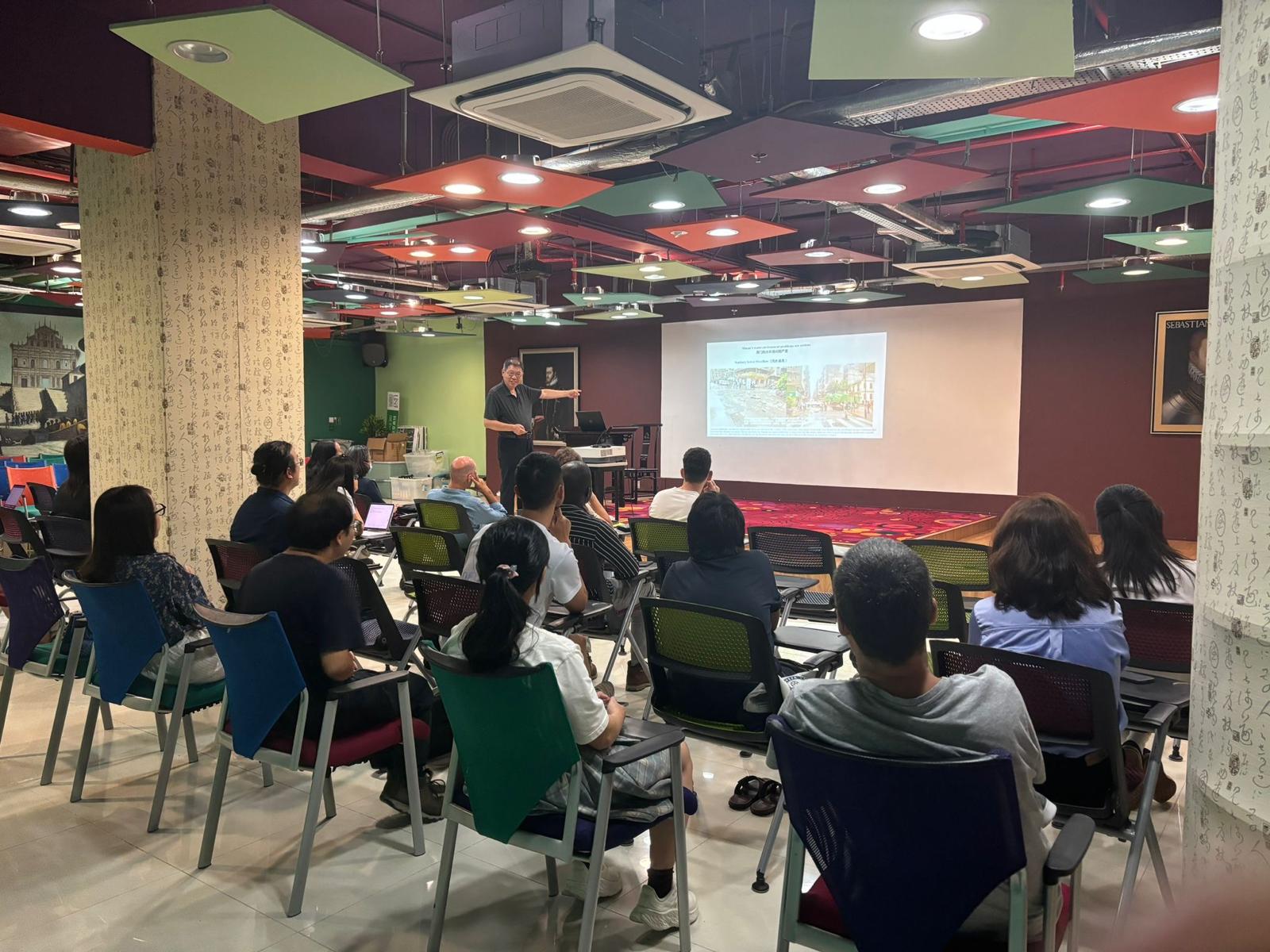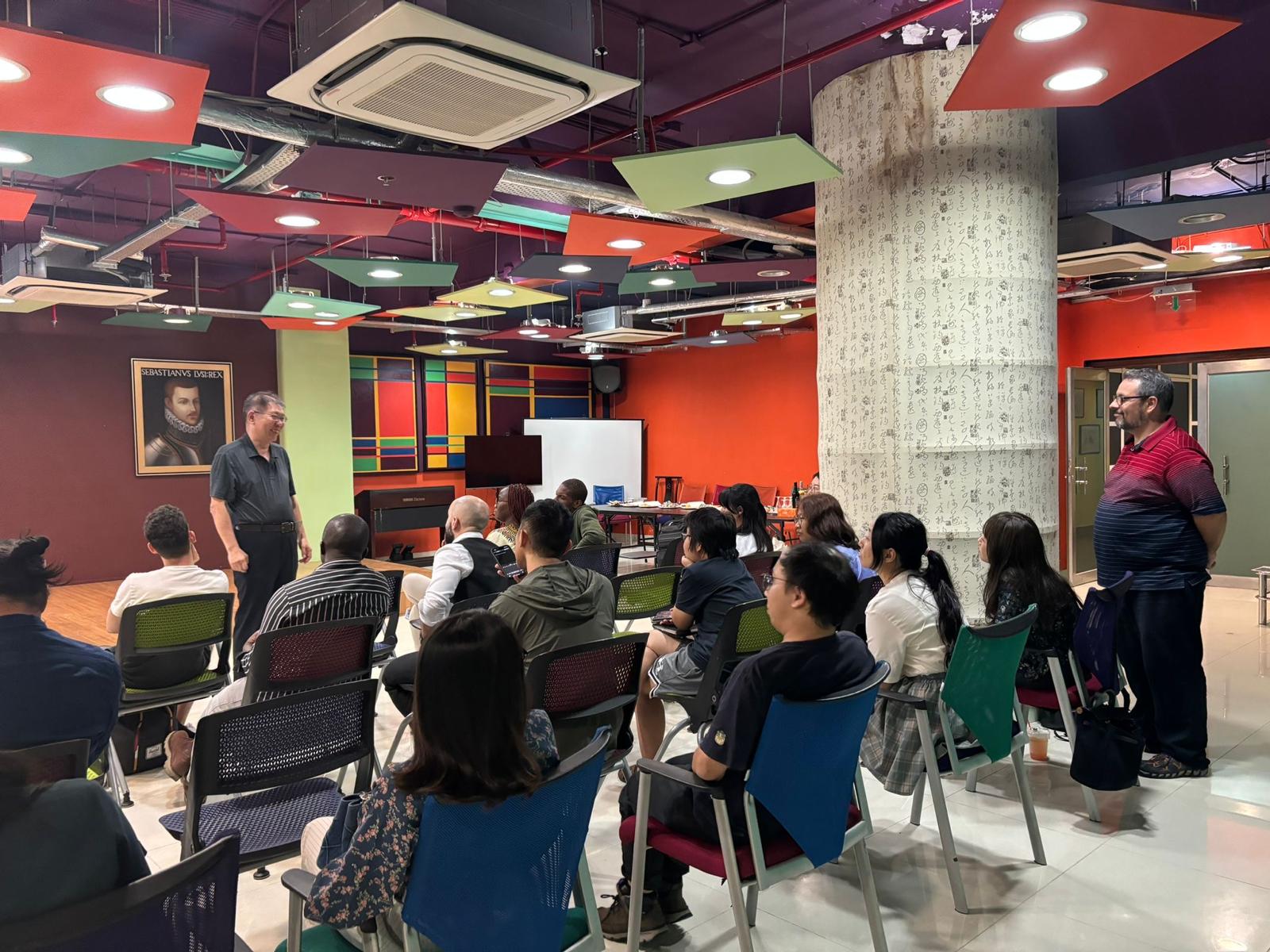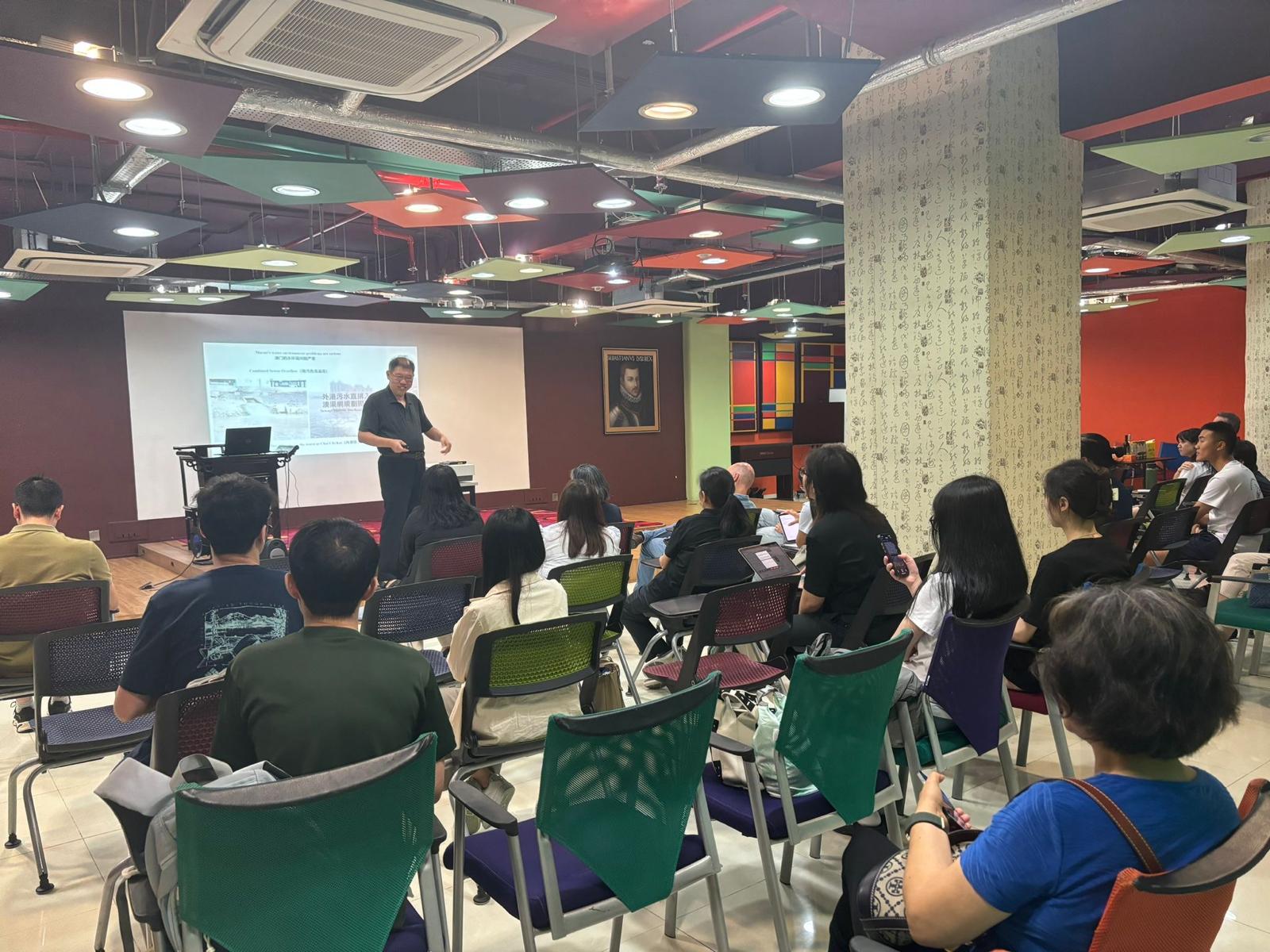USJ Hosts Lecture on Sponge City Construction in Macao

USJ Hosts Lecture on Sponge City Construction in Macao
27
Sep
27/09/2024
This event aimed to explore biodiversity in Macao’s urban wetland ecosystems and the vital role of water stewardship, addressing the challenges and opportunities surrounding sponge city construction in Macao.
The University of Saint Joseph (USJ) recently held a public lecture addressing the challenges and opportunities surrounding sponge city construction in Macao. Organised by the USJ Institute of Science and Environment (ISE) as part of the “One Drop at a Time” initiative “One Drop at a Time: Exploring Biodiversity in Macao’s Urban Wetland Ecosystems and the Role of Water Stewardship”.
Moderated by Prof. Karen Tagulao, the lecture featured Dr. Nian She, a distinguished expert in sustainable water management and the Director of the Tsinghua University Innovation Center in Zhuhai, China. With over three decades of international experience, Dr. Nian She presented innovative strategies to combat urban flooding, enhance sanitation, and effectively manage storm runoff through Low Impact Development (LID) principles.
The lecture outlined how these strategies could restore hydrological conditions to pre-development levels, significantly mitigating the risk of flooding during major storm events, including those with a 30-year recurrence interval. The discussion resonated deeply with attendees, given Macao’s unique geographical challenges as a densely populated coastal city vulnerable to the impacts of climate change and extreme weather.
As a low-lying urban area characterised by extensive land reclamation, Macao faces increasing threats from heavy rainfall and storm surges. The sponge city concept, which promotes urban water absorption, retention, and purification, offers promising solutions to these pressing environmental issues. By integrating sustainable practices into urban planning, Macao can better balance development needs with ecological resilience.
As Macao positions itself as a center for sustainable tourism and economic development within the Greater Bay Area, the adoption of such innovative approaches could serve as a model for other cities facing similar challenges. The lecture attracted a diverse audience of students, academics, and professionals from urban planning and environmental management, reflecting the local community’s growing interest in sustainable urban development solutions. This strong turnout underscores Macao’s commitment to environmental stewardship and the recognition of the need for innovative urban water management strategies.
USJ Macao is actively engaging with the community to support Macao’s sustainable development, reflecting its focus on education and research. Through events like this, the university hopes to contribute to discussions that can help foster a more resilient and sustainable future for the region.












